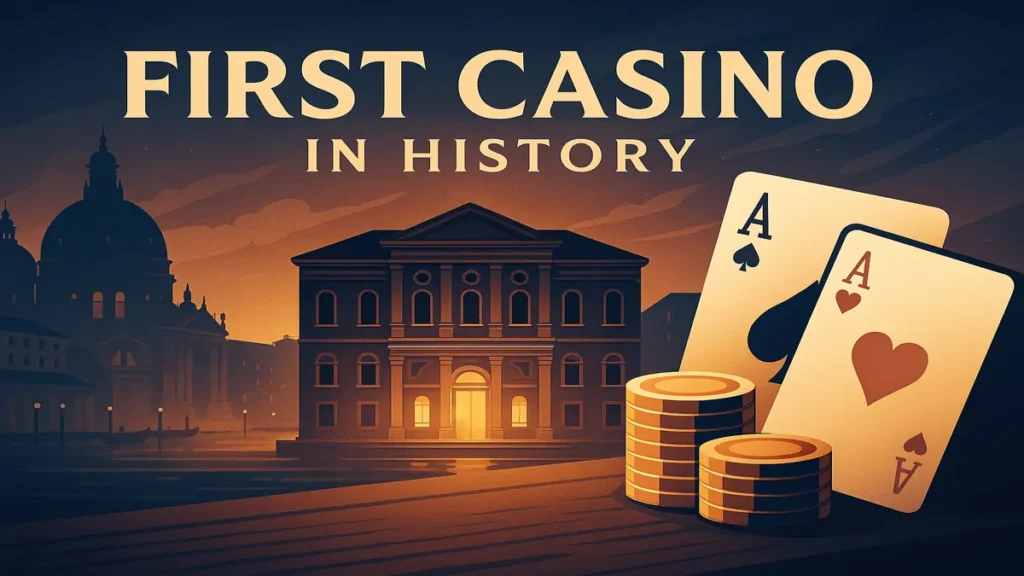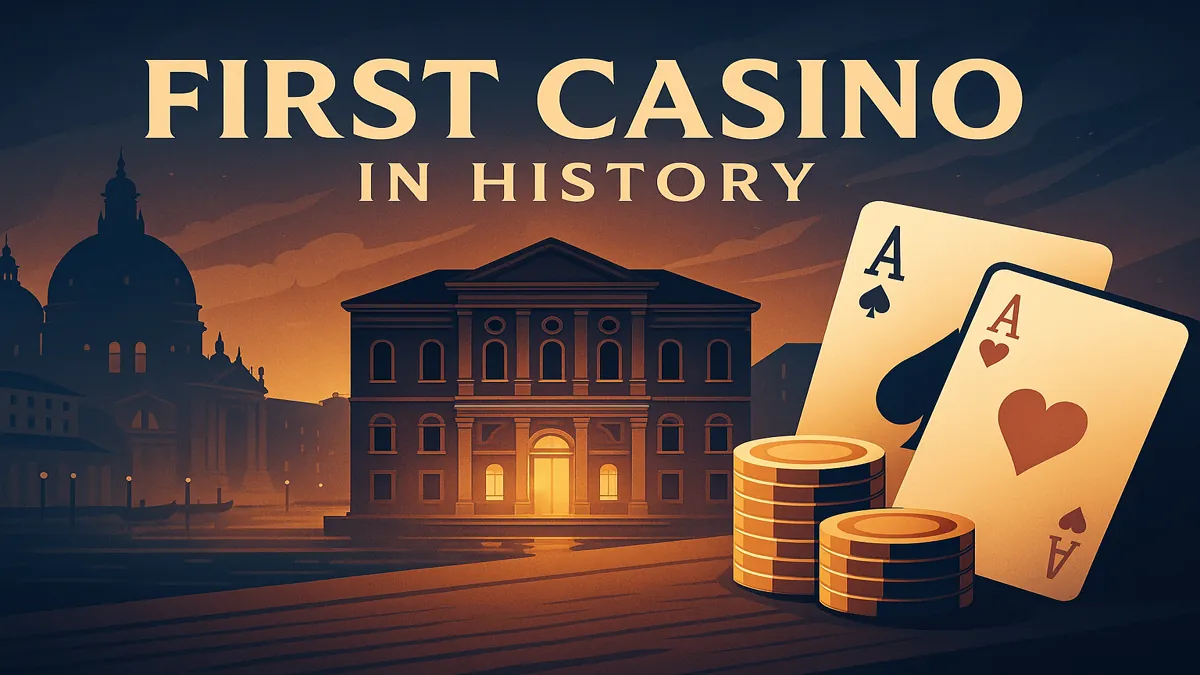The first casino in history is more than a historical curiosity—it is a milestone in the evolution of gambling and public entertainment. The history of casinos traces back centuries, evolving from informal betting circles to grand gaming palaces. But where was the world’s first official casino established? The answer lies in 17th-century Venice, where the concept of state-regulated gambling was born. This article delves into the origins of organized casino gambling and how it paved the way for the global industry we know today.

The Birthplace of Legalized Gambling: Venice, Italy
Ridotto di San Moisè – The First Public Casino
In 1638, the Venetian government opened the Ridotto di San Moisè, widely recognized as the first official casino in the world. Created to provide controlled gambling during the city’s carnival season, it was housed in a wing of the Palazzo Dandolo. Entry was restricted to nobles, and players were expected to dress formally.
Why Venice?
Venice was a hub of commerce, wealth, and culture during the 17th century. With rising concerns over illegal gambling and social disorder, the government decided to regulate betting through a centralized, public venue. The Ridotto allowed authorities to monitor games and collect revenues.
How the Ridotto Set the Standard for Modern Casinos
Game offerings and structure
The Ridotto offered popular games of chance like biribi and basetta, both precursors to modern roulette and poker. It featured designated gaming tables, staff, and even house rules—elements that became templates for future casinos.
Social exclusivity and class structure
Gambling at the Ridotto wasn’t just a leisure activity; it was a social event for Venice’s elite. The dress code, high stakes, and formal decorum reinforced gambling as a luxury pursuit, a trend seen even in today’s high-end casinos.
The Decline and Legacy of the Ridotto
Closure in the late 1700s
Despite its popularity, the Ridotto was eventually closed in 1774 due to concerns about moral decline and aristocratic excess. However, its influence endured. The concept of a regulated gambling venue spread across Europe, inspiring future establishments in Monaco, Germany, and beyond.
A Venetian Legacy That Reshaped Entertainment
The first casino in history, Venice’s Ridotto, marked a pivotal moment in gambling history. By institutionalizing and regulating the act of gambling, Venice laid the foundation for the modern casino industry. Today’s glittering resorts owe their origins to a 17th-century salon where aristocrats once rolled dice in powdered wigs.
